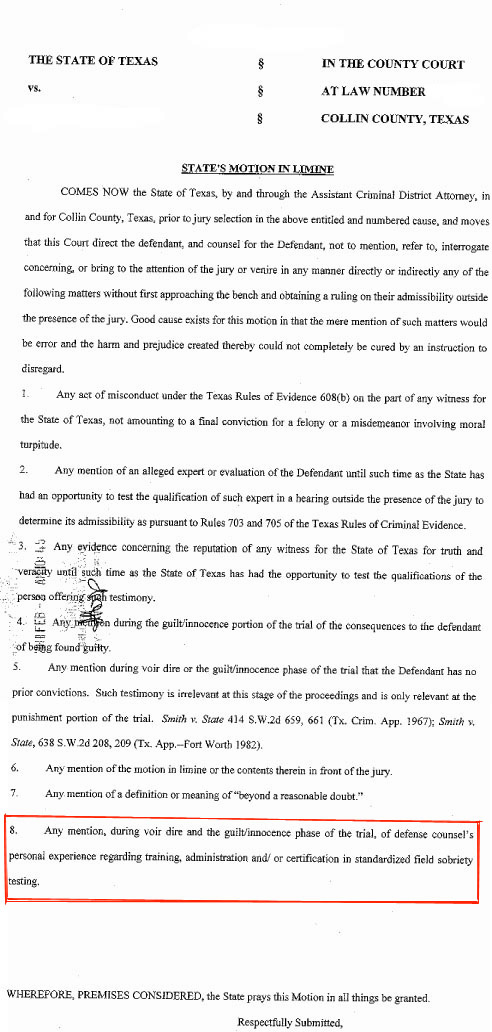Recently, we had a trial set in which the prosecutors filed some pretrial motions. While not uncommon for the prosecutors to file such motions, one of the items they requested I found quite interesting. 
The prosecutors filed a "Motion in Limine." A Motion in Limine is the attorney asking the judge to make the opposing attorney ask permission in advance of doing something. Some common requests are for an attorney to request the opposing attorney to ask permission during trial in advance of offering expert testimony, or something else they think might be inadmissible and don’t want the jury to hear.
Well, the State’s Motion in Liminie starts out pretty normal, but they then add in the "Biederman & Burleson" Clause. Both my partner Troy Burleson and myself are both certified to administer Standardized Field Sobriety Tests. This is the same certification the police officer’s have. I am an instruction in Standardized Field Sobriety Testing (I can teach the course that certifies the students). I guess they State doesn’t like the jury know we have more specialized knowledge than most of the officers.
 Frisco DWI Lawyer & Attorney Blog
Frisco DWI Lawyer & Attorney Blog

